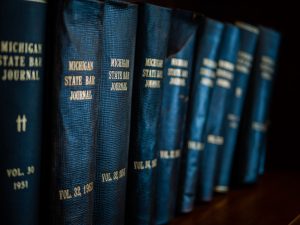Lawsuits challenging social distancing during the pandemic are not likely to succeed.
While it may be difficult to self-quarantine and implement social distancing during the COVID-19 pandemic, experts contend lawsuits challenging these guidelines are not likely to succeed. They also believe it’s more than troubling so many are confused by the necessity of voluntary distancing even when one has no symptoms, which has caused many states to transition to mandatory lockdown.
“These are not normal times, this is not a drill,” said Dr. Jeanne Marrazzo, director of infectious diseases at the University of Alabama in Birmingham. “We have never been through anything like this before.”
James Hodge, law professor at Arizona State University, explained, “Lawsuits are unlikely to be successful unless they are challenging a truly egregious practice. The idea that you’re going to walk into court and object vehemently and successfully against known, proven public health social distancing measures that are being employed currently is not a winner.”
While some are insisting social distancing is doing little to stop the spread of the coronavirus, most experts are in agreement it is one precaution that can be taken to keep others from getting infected. Thus, lawsuits claiming an egregious situation won’t hold up.

“State and local officials who declare emergencies have even broader powers than the federal government,” according to Elizabeth Goitein, a director of the liberty and national security program at the Brennan Center for Justice at New York University’s law school. “The federal government has more money, but state and local officials have police powers, essentially their authority to maintain public health and safety.”
Section 361 of the Public Health Service Act law allows the federal government to quarantine individuals suspected of certain communicable diseases if they arrive in the United States by air, land or sea, and the precautions are currently being taken, limiting both domestic and international travel.
“There’s no question that if you’ve been exposed to the virus, but not showing currently symptoms, that there could be a quarantine order and that it could be enforced by law,” Lawrence Gostin, a law professor at Georgetown University, said. “But once you start getting into what might colloquially be called an en masse quarantine or a lockdown where government will actually aggressively enforce it, then you’re getting into territory that implicates the most fundamental constitutional rights and the right to freedom of movement, the right to freedom of travel.”
“Every single reduction in the number of contacts you have per day with relatives, with friends, co-workers, in school will have a significant impact on the ability of the virus to spread in the population,” said Dr. Gerardo Chowell, chair of population health sciences at Georgia State University.
However, the American Civil Liberties Union’s Hina Shamsi, director of the ACLU’s National Security Project, said it will be watching closely for civil rights violations that might constitute a viable lawsuit.
He said, “Use of emergency powers in this pandemic can be legitimate for measures grounded in science and public health and when consistent with the need to protect the health, safety, and civil liberties of us all. The ACLU will be watching closely to make sure any use of emergency powers in response to the pandemic is grounded in science and public health, not politics or discrimination.”
Sources:
Lawsuits over coronavirus quarantines are unlikely to succeed, experts say


Join the conversation!